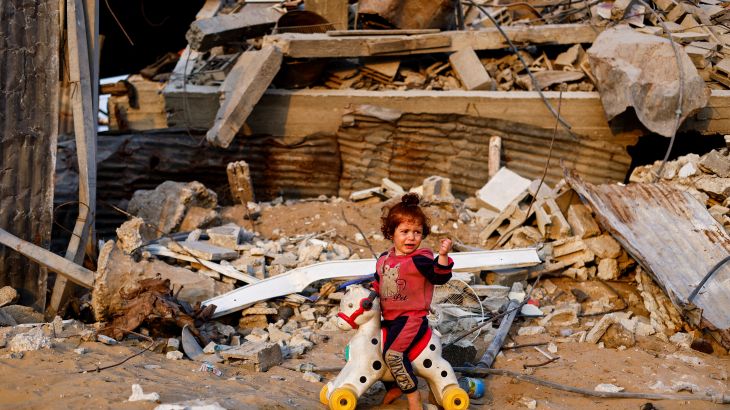Trump expects int’l stabilisation force to be on ground in Gaza ‘very soon’
Israel adamant that it will not accept Turkish armed forces in Gaza under Trump’s 20-point peace plan.

US president expects Gaza peacekeeping force ‘very soon’
By Al Jazeera Staff and News Agencies
Published On 7 Nov 20257 Nov 2025
Save
United States President Donald Trump has said he expects a US-coordinated international stabilisation force to be on the ground in Gaza “very soon” as part of his post-war plan for the enclave, which is still suffering a full-blown humanitarian crisis amid continued Israeli bombing.
“It’s going to be very soon. And Gaza is working out very well,” said the president on Thursday, adding that an alliance of “very powerful countries” had volunteered to intervene if any problems arose with the Palestinian armed group Hamas, which has not yet confirmed it will disarm.
Recommended Stories
list of 3 itemsend of list
The president’s projection came as the United Nations Security Council prepares to start negotiations to authorise a two-year mandate for a transitional governance body and the stabilisation force, which is supposed to protect civilians, secure border areas and train Palestinian police.
Secretary-General Antonio Guterres told Al Jazeera on Tuesday that any stabilisation force must have “full international legitimacy” to support Palestinians in Gaza.
A senior US government official told the Reuters news agency that negotiations were expected to start on Thursday, following his country’s circulation of the draft resolution to 10 elected UNSC members and several regional partners this week.
The resolution, which was reportedly seen by Egypt, Qatar, the United Arab Emirates, Saudi Arabia and Turkiye, would permit a stabilisation force of 20,000 troops to “use all necessary measures” to carry out its mandate, meaning it will be allowed to deploy force, according to Reuters.
Advertisement
Hamas has not said whether it will demilitarise, a key tenet of Trump’s 20-point plan, but part of the stabilisation force’s task would be to destroy its capacities and “offensive infrastructure” and to prevent it from rebuilding.
Trump’s plan helped lead to a captive release deal and a fragile ceasefire between Israel and the armed group on 10 October, which the former has repeatedly breached with its repeated bombing and heavy restrictions on aid to the enclave.
Turkiye played a crucial role in the negotiations by encouraging Hamas to accept the peace plan and rallying support for the stabilisation force by hosting foreign ministers from Qatar, Saudi Arabia, the United Arab Emirates, Jordan, Pakistan, and Indonesia in Istanbul this week.
Turkiye has repeatedly condemned Israel’s genocidal war in Gaza and demanded at the top-level meeting that Israel stop violating the truce and allow crucial humanitarian aid to enter the embattled Palestinian territory.
But Israeli officials – including Prime Minister Benjamin Netanyahu and Foreign Minister Gideon Saar – are adamant that their country will not accept a Turkish presence in Gaza.
Israel appears to have its own narrative on the stabilisation force. During a joint news conference with Trump back in September, Netanyahu told reporters that “Israel will retain security responsibility, including a security perimeter, for the foreseeable future” in Gaza.
The head of the US Central Command, which is responsible for the Middle East, said last month during a visit to Gaza that no US troops would be deployed there.

